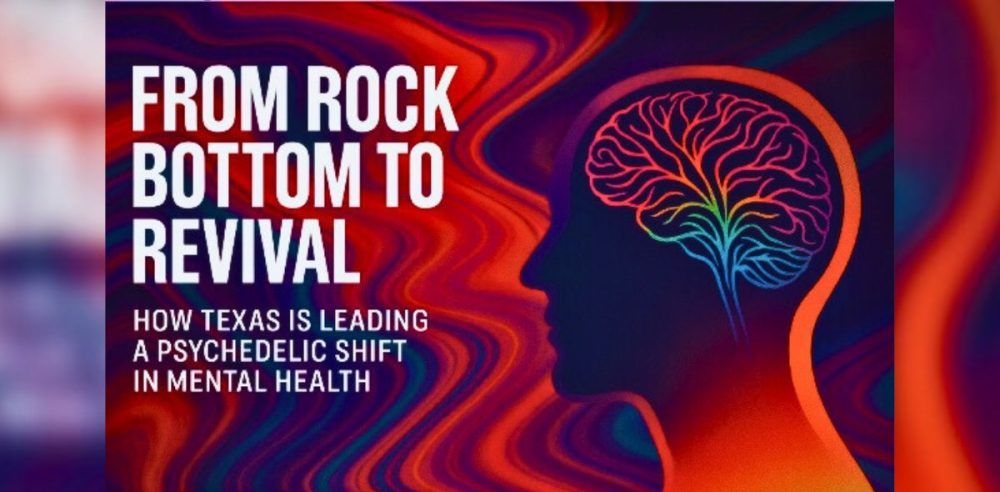In a state known for its grit and independence, Texas is quietly emerging as a surprising leader in a frontier far more personal than oil or cattle…. the battle for mental health healing through psychedelic therapies.
At the heart of this movement is House Bill 3717, introduced by Representative Cody Harris, which seeks to fund FDA-approved clinical trials of ibogaine, a powerful plant-based psychoactive compound. Originally used in West African spiritual rituals, ibogaine is now showing extraordinary promise in treating PTSD, traumatic brain injuries (TBI), and substance use disorders, particularly among veterans and first responders.
One of the most powerful testimonies in support of the bill came from Chris Thompson, a retired Green Beret with seven combat deployments that Merissa Hansen (@merissahansen17) shared on X. Standing on the floor of the Texas Legislature, Thompson didn’t mince words. After years of feeling broken by trauma and grappling with suicidal ideation, traditional treatments left him numb and hopeless.
Chris Thompson, a retired Green Beret, endured 7 combat deployments and struggled with PTSD, TBI, and alcohol dependency for years, finding no relief—until ibogaine transformed his life. #HB37pic.twitter.com/U4wwg1PTEb
— Merissa Hansen (@merissahansen17) April 9, 2025
But ibogaine changed everything.
“That treatment saved my life,” Thompson told lawmakers. “I felt like a prisoner in my own mind. Ibogaine gave me a key.”
His story, and those of many others, are compelling Texas lawmakers and citizens alike to reconsider what healing can, and should, look like.
The Science and Safety of Ibogaine & Ketamine
Ibogaine isn’t alone in this new wave of mental health care. Ketamine, already available through licensed clinics in Texas, has been used with growing success to treat severe depression, anxiety, and PTSD. Known for its rapid-acting effects, ketamine helps create new neural connections, offering many patients relief within hours rather than weeks.
Ibogaine, however, has the potential to rewrite the brain’s narrative more profoundly. Patients often describe undergoing vivid, introspective experiences that allow them to confront trauma with new perspective and emotional clarity.
But these aren’t “miracle drugs.” They’re serious interventions, and they come with risks.
Ibogaine, in particular, has been associated with cardiac complications, especially when not properly administered. The Stanford study that helped propel HB 3717 used magnesium as a protective measure during treatment – just one example of how science is working to make this powerful plant medicine safer and more accessible.
Personalized Medicine: A Crucial Step Before Treatment
Here’s where personal responsibility and modern science intersect.
Pharmacogenetic testing – a genetic screen that helps determine how your body may respond to certain medications – should be a non-negotiable first step for anyone considering psychedelic therapy. One individual’s testimonial shared online underscored this point:
“My pharmacogenetics report revealed sensitivities that could have resulted in severe side effects. Everyone considering this kind of treatment should have their profile reviewed first.”
This kind of precaution isn’t just smart – it’s lifesaving. In a space where new hope meets deep vulnerability, knowing your body’s unique blueprint can mean the difference between healing and harm.
Why It Matters
Mental health has no political party! Trauma doesn’t care about status. And for many veterans, first responders, and everyday Texans, traditional treatments have failed them – over and over again.
Texas, in backing HB 3717 and spotlighting testimonies like Chris Thompson’s, is doing something revolutionary: choosing to listen, to research, and to act.
It’s not just about psychedelics. It’s about possibility. It’s about redemption. And for many, it’s about staying alive long enough to finally feel like themselves again.


